VitroplantSA, a plant propagation company, has become a key player in the South African horticulture industry. Established a decade ago to meet the growing demand for deciduous fruit rootstocks, the company has expanded its operations to include a wide range of crops such as cherries, blueberries, kiwis, grapes, almond-peach, pears, walnuts, pistachios, and potatoes. VitroplantSA's shareholders include international partners, Vitroplant Italy and Hishtil, along with the local partner ZZ2. Together, they contribute technical expertise and support systems in finance, HR, and infrastructure.
The company operates with a strong focus on energy efficiency, innovative partnerships, and technology systems that work in South Africa to meet the diverse needs of its customers.
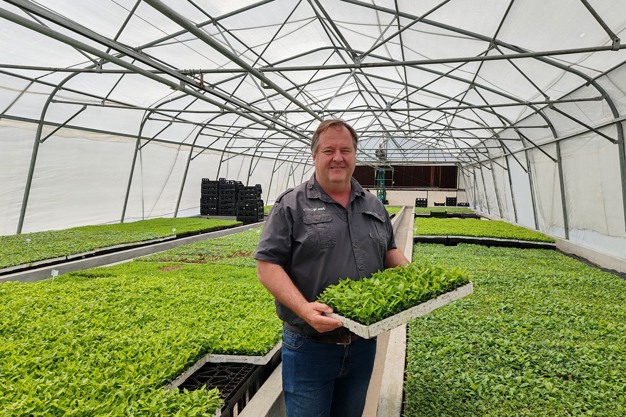
Frederik Voigt inside the Young Plants Tunnel, where optimal growing conditions are maintained
Working with South Africa's climate diversity
South Africa's varied climate zones influence VitroplantSA's operations, allowing them to reduce reliance on artificial heating for crops. Blueberries, for example, are grown in Mooketsi in Limpopo province, where warmer winter temperatures reduce the need for electricity to heat greenhouses. This approach saves energy and creates more favorable growing conditions.
VitroplantSA aims to minimize energy use through natural growing environments. While the Mooketsi site in the Limpopo province benefits from naturally warmer conditions, their lower-altitude sites utilize pad-and-fan systems for cooling. However, with the integration of solar power, the company is moving towards becoming completely off-grid.
"Solar is a game-changer for us, as it is both environmentally friendly and more cost-effective," noted Harry Danckwerts, Business Development Manager at VitroplantSA.
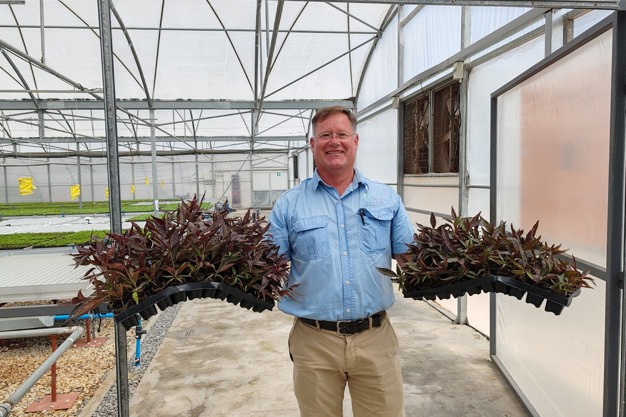
Client at VitroplantSA collecting rootstocks
Expansions and automation
As part of its expansion, VitroplantSA plans to enhance its automation processes, particularly in its tunnels where plant production occurs. "This step is crucial for increasing output without raising labor costs. We're exploring Dutch growing beds and automated systems for planting, moving, and irrigating the plants," explains Frederik Voigt, Horticultural Product Specialist at VitroplantSA. "We have imported machinery, such as the complete Ellepot system from Denmark, which helps efficiently produce millions of plant plugs annually."
With the company currently producing around 3.5 million plants annually, Harry mentions that the growth potential is significant with a potential for 6 million plants per year. Blueberries and apples are two of their major crops, alongside potatoes. The latter remains a stable market, with consistent demand for potato plantlets and mini tubers with other product lines like blueberries continually bringing in welcome surprises.
The flexibility to grow in different regions and diversify crop production has been a major advantage for VitroplantSA. "We use different microclimatic areas of South Africa to use as little energy as possible," Harry explains. This ensures they can propagate plants year-round without excessive reliance on heating.
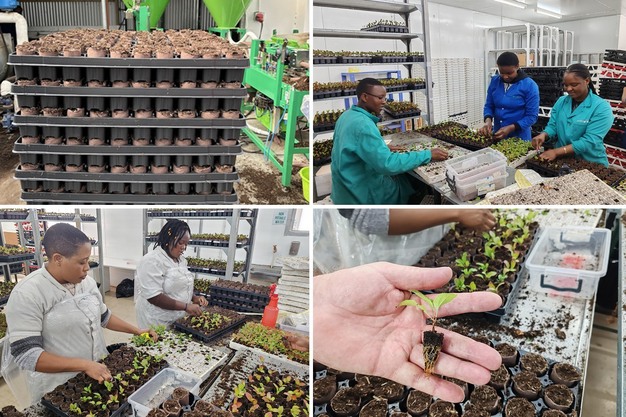
Streamlining growth: preparing planting trays with the Ellepot system top left;
Rooted plugs get planted in a peat wood fiber mix in Ellepot plugs
Fast-tracking imports with international partners
VitroplantSA's operations are supported by international cross-governmental partnerships that facilitate the import of plant material. One such partnership is with CAV and Vitroplant in Italy, which collaborates with the South African Department of Agricultural Quarantine department. This relationship allows for the fast-tracking of tissue culture imports, significantly reducing the time required to bring new plant material into the country.
VitroplantSA is registered as an external quarantine inspection facility, ensuring that imported plants meet the South African Department of Agricultural (DALLRD) Quarantine's phytosanitary requirements and regulations. This streamlined process has been instrumental in allowing the company to meet the growing demand for high-quality plants.
The ability to import plant material quickly and efficiently is essential for maintaining supply chains and meeting customer needs, especially in an industry where timing can make or break a growing season. "With VitroplantSA acting as an external quarantine inspection facility, we can bring in new plant materials much faster than before," says Frederik.
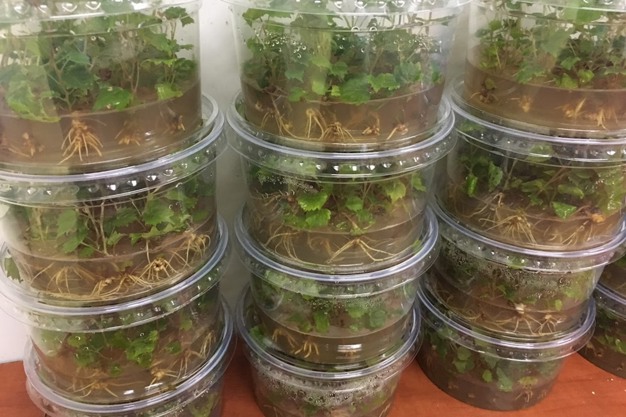
Mass imported tissue culture plants in tubs for quicker propagation
Challenges and future plans
One of the ongoing issues is the energy cost of maintaining optimal temperatures in the nurseries. "In the colder months, it becomes really expensive to keep things going," admits Harry. However, the company's efforts to harness South Africa's natural climate zones, along with its shift to solar power, have significantly reduced these costs.
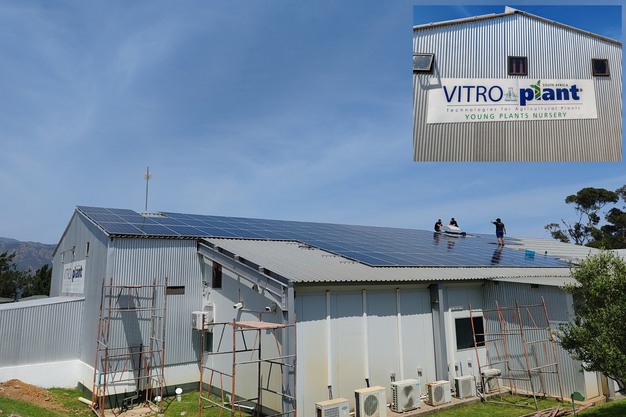
Solar panels installation
Additionally, the company is pursuing continuous automation in its production processes. They currently use basic climate control systems, with temperature probes activating fans when the greenhouse reaches a certain threshold. VitroplantSA's long-term vision is to mechanize its entire production line, from planting to moving the plants through the different stages of growth.
Their plans include expanding its hardening-off tunnel facility in an area with colder climatic conditions, providing optimal conditions to enhance the hardening-off process and ensure healthier, more resilient plants.
VitroplantSA is becoming an invaluable player in South Africa's horticultural industry. They offer services to nurseries across the country and are exploring opportunities to further diversify their crop types. As Harry concludes, "We're always looking ahead, finding new ways to grow stronger plants more efficiently. Our ability to produce tissue culture plants at scale for a range of different crops is what sets us apart in the country."
For more information:
VitroplantSA
Frederik Voigt
[email protected]
www.vitroplantsa.com
